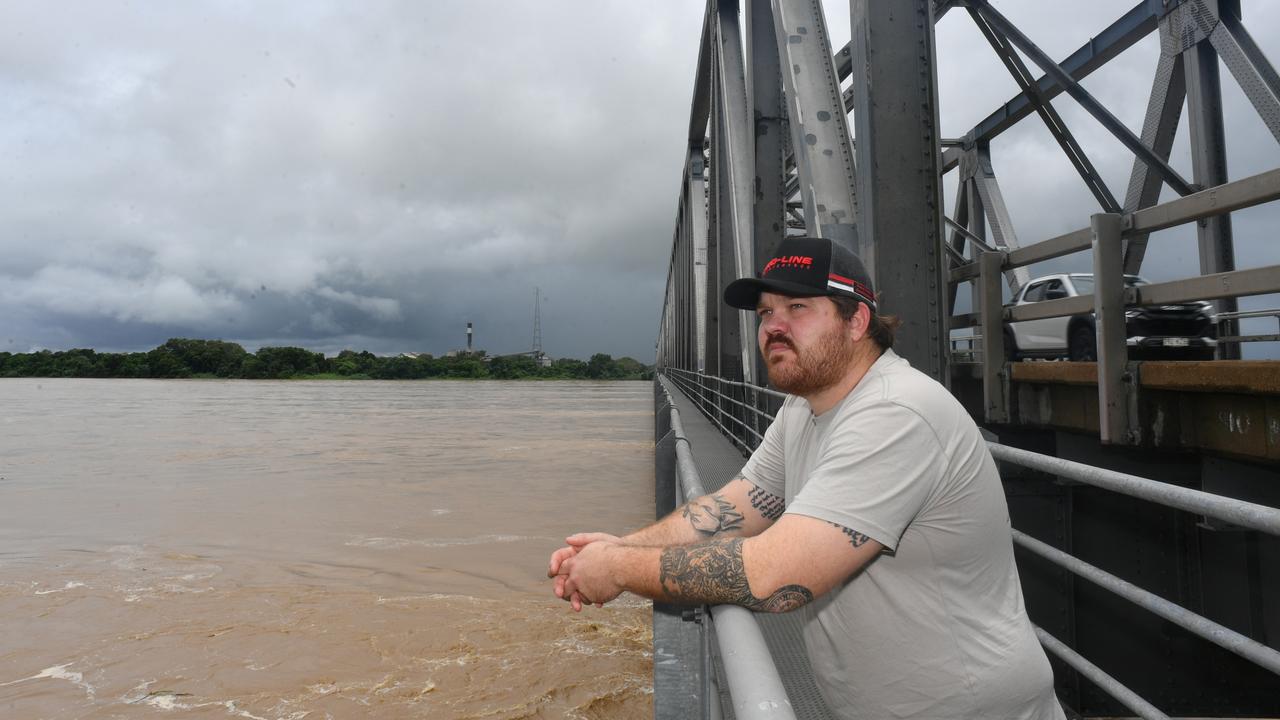Ando recounts the history of crocodile attacks in the North
In almost every croc attack incident in the history of croc attacks in Australia, the victims have put themselves in situations of grave danger. In Talk of the North, Ando recounts the history of crocodile attacks in the North.
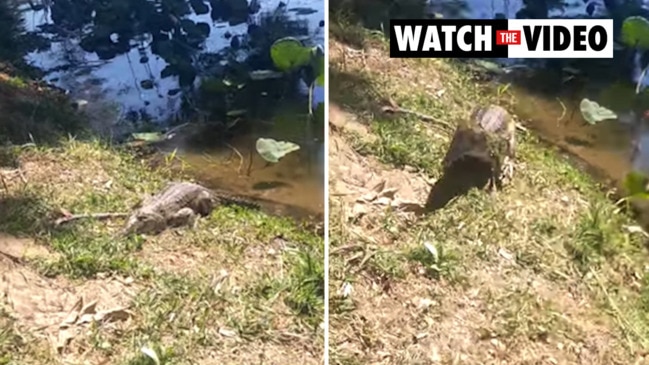
Townsville
Don't miss out on the headlines from Townsville. Followed categories will be added to My News.
WE have had some shocking crocodile attacks over the years in Northern Australia.
Beryl Wruck aged 43 was taken by a five metre crocodile when she and some friends walked into shallow water in a Daintree River tributary one night in 1985. The popular Daintree Village identity hardly knew what hit her. There was a swirl, she was thrown into the air and then she was gone. There wasn’t a sound. Days later a human arm was found inside a croc, shot near where Ms Wruck was taken.
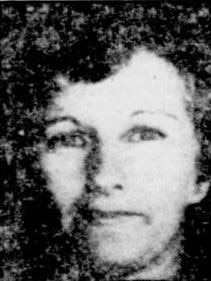
Catherine McQuarrie was killed February 11 1986 while swimming to the barramundi boat she was working on north of Karumba. She and the skipper had travelled upstream in Van Rook Creek, a tributary of the Staaten River in a tinny. The Staaten is a remote, almost secretive river system on the western side of Cape York Peninsula. It is prime crocodile habitat. The pair were scouting out possible locations to set nets. The tinny broke down and they decided to walk back to the main boat to pick up repair gear. It was a long walk and given it was February it would have been extremely hot and humid. What would have been foremost in their minds while plodding through open scrub and mangrove was the fact they would have to undertake the dangerous swim out to the large ‘mother’ boat when they drew level with it on the bank.
Why the two of them swam out to the main boat is not known. The skipper could have gone on his own and swam back to the bank with the tools. They could have walked back to the dinghy, fixed it and motored back to the main boat. It’s all academic now.
What happened was that the skipper waded out first and started swimming through the deep, black water. McQuarrie followed close behind. The skipper was pulling himself up onto the boat when the attack came. He might have heard a cry, then again, he might not have heard anything. But, as he turned back to look for his deckie, he saw her being taken by a giant croc. It grabbed her around the pelvic area and took her down into the depths. Police later told the woman’s distraught parents that the crushing force of the jaws would have resulted in almost instantaneous death.
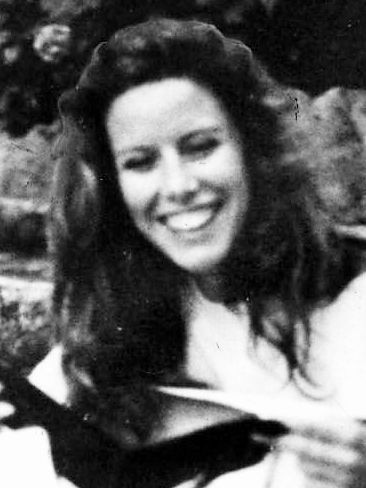
Who can forget the death of 24-year-old American model Ginger Meadows who came to Australia after seeing the outback spoof movie, Crocodile Dundee. She was on a cruise boat in the Prince Regent River in the West Australian Kimberley. Inexplicably, she and her friend were frolicking in a rock pool under the Kings Cascade Water Falls.
Why, whoever was in charge of the vessel they had arrived on, let them swim there is a question often asked. The crocodile swam from the river and into the rock pool where Ms Meadows was swimming. Her friend, who was on one side of the pool, threw a shoe at it in an attempt to turn it away. The croc submerged and while it was under the water, Ms Meadows, who was on the opposite side, took the opportunity to try to swim to her companion. The crocodile seized hold.
A reporter from The Australian newspaper spoke to eye witnesses. One person told of seeing the croc grab Ms Meadows around the hips and take her under. Seconds later it surfaced with her body in its jaws. The woman’s arms were flung out wide and she plaintively cried out, “help me, help me”. There was nothing anyone could do.
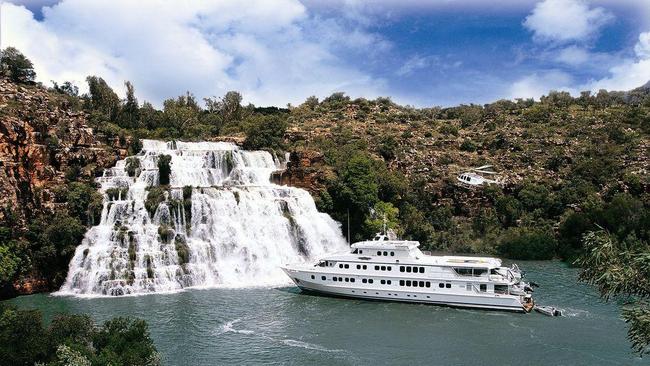
The crocodile went under again. Seconds later it resurfaced with the limp and silent body of Ms Meadows in its jaws. The crocodile then took the lifeless body down into the main river. Her body was later recovered from where it had been stashed in amongst bankside vegetation.
A student friend of mine and keen photographer was working a holiday job at Weipa in 1975 when he was visited by police on Saturday, April 26 and told to get his camera and to go with them. They drove through the bush to a small Mission River tributary where a large crocodile, it’s belly cut open, lay on the bank. There were human remains present. My friend was asked to photograph the grisly scene.
Peter Reimers, 32, had been pig hunting when he decided to have a rest beside a waterhole. He went to sleep on the bank and was dragged in alive by the croc. My friend told of being able to see the fingernail marks in the dirt, left by Mr Reimers as the crocodile pulled him into the waterhole. Explosives were set off in the creek. A 4.5 metre crocodile floated to the surface. When it was cut open, human body parts were found inside. Further down along the bank two human legs bearing bite marks were recovered.
Northern Territory crocodile experts Dr Charlie Manolis, Chief Scientist at Wildlife Management International based in Darwin and Professor Grahame Webb from the same organisation, have written a definitive account about what happens to the human body when it is consumed by a crocodile. They based much of their research on the 1986 disappearance of Lee McLeod (alias Rusty Wherret) from the boat ramp on the McArthur River near Borroloola. Mr McLeod was drunk when he went to sleep in proximity to the water’s edge.
Manolis and Webb: “At about 7pm on Saturday 6 September 1986 Lee McLeod (alias Rusty Wherret), a ringer who had been working in the Borroloola area, left the local hotel with a mate, Dennis Vowken. Both were in an intoxicated condition at the time. They proceeded to Rocky Point, some distance from the hotel, to a boat ramp on the McArthur River, behind the township. On arrival they consumed more alcohol, finally falling to sleep on the bank of the river. When Vowken woke at about midnight he could not find McLeod in the immediate area, although McLeod’s shirt was still there. Vowken felt no concern and left the area. Late on Sunday 7 September, Vowken worried over McLeod’s absence and reported him missing to the police. Because McLeod’s shirt was located on the bank of the river, police speculated that he may have gone for a swim, got into difficulties and drowned.
A systematic search was conducted throughout Monday 8 September, and continued until police located severed human legs approximately 300 metres upstream from where McLeod and Vowken had slept. It was known that a large saltie in excess of five metres and known as ‘Gus’ by the locals inhabited this portion of the river and was suspected as the culprit for the attack. Government Task Force officers arrived to hunt down the croc.”
Gus, weighing one tonne, was harpooned and then shot in the head when he charged the boat. An autopsy was conducted and police took possession of human remains. Gus measured in at 4.87m even though the last II vertebrae were missing from his tail. Prof Webb estimated that with his tail intact he would have measured about 5.05 metres.
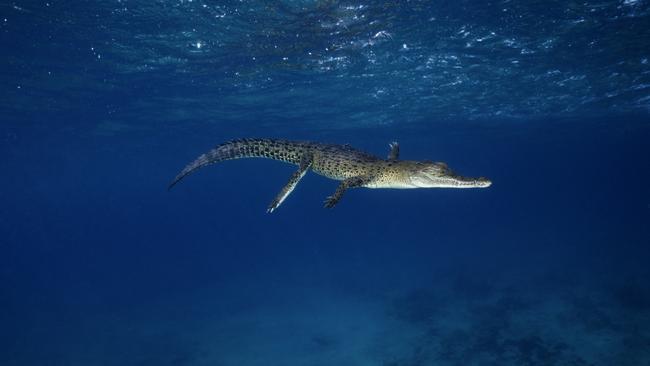
Manolis and Webb: “The remains of McLeod, including the torso, were found headfirst in the stomach of Gus. The digestive juices of the crocodile had already reduced bone matter to the consistency of rubbery gristle, flesh to a jelly-like substance and skin bleached and rubbery-like in texture.”
It is of note that approximately five months before McLeod was taken, a man swimming across the river late at night with a carton of VB beer, was attacked by a crocodile, mouthed and “spat out”. In between being mauled by the croc and then being spat out, the man lost his carton of VB. It is believed that the crocodile involved was Gus.
Manolis and Webb: Inspector M.V. Burke the Divisional Officer in charge of the Police Division, in his correspondence pertaining to the crocodile attack on McLeod summed up the matter succinctly. “It’s a little sad when all the circumstances are viewed in retrospect. A chance meeting of man and beast resulted in a horrific, agonising exodus from this world by McLeod, and the tracking, harpooning, overpowering and final destruction of one of nature’s relics of prehistoric times. A relic it might be, the oldest who maintained sovereignty over his particular “territory” for the last 15 odd years, ever since their kind were protected from being shot into extinction in 1971.
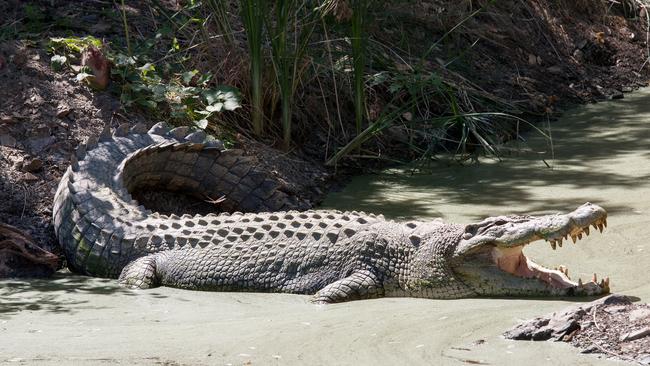
This dominance only being maintained by fighting off all-comers until man, a creature from another element trespassed his domain, presenting himself as prey at a time when food was an apparent priority. There is no doubt had Gus fed in the days preceding his encounter with McLeod or, for that matter, had McLeod’s reasoning not been clouded by alcohol, there would have been no cause for writing this account.”
Indeed, all of the deaths I have featured above happened because people put themselves in positions where it was likely they would be killed by crocodile. Beryl Wruck walked into a Daintree River tributary late at night. Catherine McQuarrie swam in Cape York Peninsula’s Staaten River system. Ginger Meadows naively entered the waters of the Prince Regent River. Peter Reimers lay down near the water’s edge in croc country near Weipa. Lee McLeod was in a drunken stupor at night on a boat ramp on the bank of the Northern Territory’s McArthur River. All of these people recklessly put themselves in danger. Ol’ mate swimming across the McArthur River at night with a carton of beer survived an attack. You could put his survival down to the luck of fools.
In almost every croc attack incident in the history of croc attacks in Australia, the victims have put themselves in situations of grave danger.
More Coverage
Originally published as Ando recounts the history of crocodile attacks in the North




